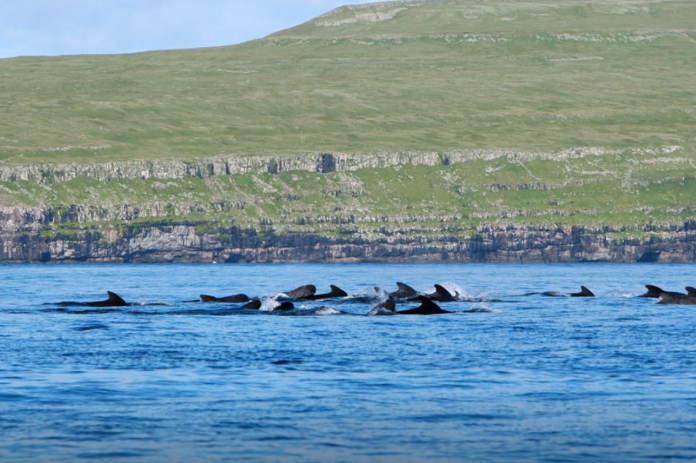Whales don’t need a computer to collaborate
Ericsson has smashed multiple speed records in Denmark’s Faroe Island, getting computers to exchange 5.9 gigabits of information per second at times. Meanwhile by fine tuning its Open RAN installation, to minimise the number of human parties involved, it managed to achieve a decision-making rate of sometimes two per day.
The installers had to connect 1,400 square kms of land, 300,000 square kms of sea and 18 islands comprise an archipelago that have so far defied the network and telecoms sectors’ best efforts to connect them. As a result the 54,000 people dispersed across its islands have to be connected across through bridges, subsea tunnels and ferries. This left the locals unable to compete on a fair footing in the digital economy.
The deployment of 5G across the Faroe Islands started in 2022, though there is a huge geographic area to cover, 120 km out in all directions, the equipment maker and the Faroese Telecom Group (FTG), has been able to make it a priority. “Our ambition is to have giga speed everywhere on the islands – in cities as well, in small villages, on our roads and in tunnels, on mountaintops and even at sea” said FTG CEO Jan Ziskasen,
The speed of network building, in such an inaccessible surrounding, has been impressive. Since 2021, Ericsson has been the sole provider of 5G RAN and 5G Core, including full modernisation of the existing 4G network. Could this drive a trawler through the idea that a telco-project is run best as a collective effort? This project only included Ericsson kit and, more importantly, Ericsson staff. Open systems are fine, but doesn’t each team of humans need time to bed in and earn each other’s trust and understanding.
“Faroese Telecom is showing the world how 5G can be deployed on a wide scale during a limited period of time,” said Niclas Backlund, Country Manager of Ericsson Denmark, “Rocky volcanic islands and rapidly changing weather is not stopping either them or us from bringing the latest 5G technology to the North Atlantic Sea. “
The freedom of a small term played a big part in the project’s success. The 5G non-standalone data speeds were achieved in the commercial mobile network of Faroese Telecom in an indoor deployment using Ericsson’s AIR 5322 and Baseband 6648. Backlund didn’t have to ask anyone’s permission to aggregate 800MHz of 5G mmWave spectrum in n258 and 40 MHz of 4G FDD (frequency division duplex) spectrum, he just did it. As a result a downlink speed of 5.9Gbps was measured by the smartphone when using 256QAM modulation. Moreover, an upload speed of 1.6Gbps was registered by aggregating several carriers in the uplink (UL) and selecting a TDD (time division duplex) pattern optimized for UL traffic. That is a world speed record. In the early days of Token Ring, IBM executives thought that data moving that quickly would explode, or summon up the devil. Now unimaginable speeds are being achieved and people are making decisions at speeds not seen before Bill Gates claims to have invented the first computer. Faroese Telecom is the incumbent operator on the Faroe Islands and provides products and services within mobile, broadband, fixed line, subsea cables, and TV. It has solved problems for the Faroese people for over 117 years, way before the IT industry discovered how to make computer more expensive and less productive.


